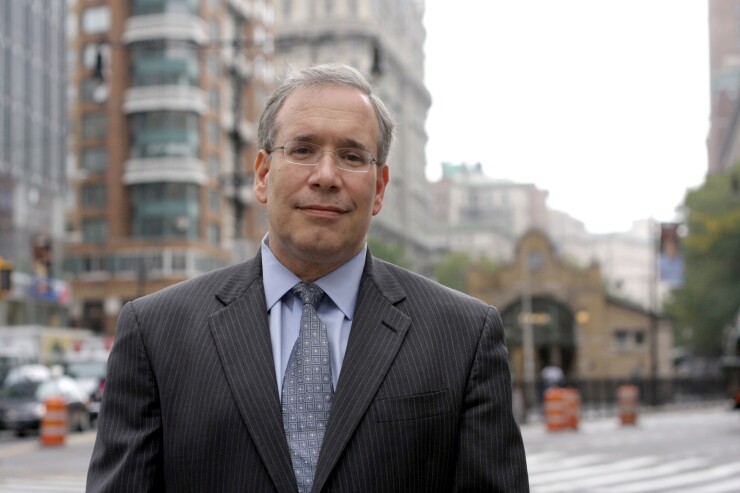New York City stands to lose at least $850 million should President Trump's $4.1 trillion budget pass, city Comptroller Scott Stringer said in a
“This budget has been called dead on arrival in Congress and let’s hope so, because lives are at stake,” Stringer said Thursday at a City Council finance committee hearing on Mayor Bill de Blasio’s proposed $84.9 billion executive budget for fiscal 2018.

“We’re monitoring what’s happening in Congress,” Stringer said, also referencing possible repeal of the Affordable Care Act, debate of which is before the Senate after the House of Representatives passed it.
Stringer and de Blasio budget director Dean Fuleihan both warned council members of the dire consequences of federal cuts.
Affected would be individual entitlements such as Medicaid and the New York State children's health insurance program with the elimination of Community Development Block Grant funds among a long list of effects to the city budget.
“The cuts in that [Trump] proposed budget announced Tuesday would have a devastating effect,” Fuleihan said in his second appearance before the council in three weeks. “It would affect not residents of the city, but the state.”
Reserves for fiscal 2018 total $5.25 billion, according to Fuleihan.
“With these uncertainties and challenges in mind, we have taken a balanced approach to the executive budget,” he said.
Reserves, he said, are $1 billion for each year of de Blasio's four-year financial plan plus $250 million annually in a new capital stabilization reserve over the four-year financial plan.
“This is in addition to the retiree health benefits trust fund, which is at an unprecedented $4 billion, $3.3 billion the result of actions taken by this administration and this council,” said Fuleihan.
The city has $38 billion in general obligation debt outstanding as of March 31, according to data from Stringer’s office.
Fitch Ratings and S&P Global Ratings rate the city’s general obligation bonds AA, while Moody’s Investors Service assigns an equivalent Aa2. All three assign stable outlooks.
“We’ve received very positive ratings and very positive reports,” said Fuleihan. “They talk about the strengths of the city and our strong financial management.”
Julissa Ferreras-Copeland, the council’s finance committee chairwoman, said the city and its agencies have not stockpiled enough reserves. “We’re not on the same page when it comes to these numbers,” she told Fuleihan.
State Comptroller Thomas DiNapoli also urged the city to set aside more funds.
“The president's proposed budget would make steep reductions in programs upon which city residents rely and poses a major risk to future city budgets,” DiNapoli said in his
“Our estimate of a bigger surplus is the product of our forecast of $220 million more in tax revenue coupled with about $90 million less in spending,” she told council members.
IBO estimates the city will end 2018 with a $943 million surplus, followed by a $1.9 billion shortfall the following year, roughly half the size of the mayoral forecast.
“Put into context, that is just under 3% of city-funded spending, an order of magnitude the city has routinely managed in years past,” said Lowenstein.





